-
 List of key Actor Award winners
List of key Actor Award winners
-
Trump hunkers down after Iran strikes

-
 China's leaders gather for key strategy session as challenges grow
China's leaders gather for key strategy session as challenges grow
-
UK toughens asylum rules to discourage migration

-
 Israel hits Lebanon after Hezbollah fire, expanding Iran war
Israel hits Lebanon after Hezbollah fire, expanding Iran war
-
CBS in turmoil as US media feels pressure under Trump

-
 Messi bags double as Miami battle back to down Orlando
Messi bags double as Miami battle back to down Orlando
-
Greenland is 'open for business' -- kind of, says business leader

-
 Canada's Carney to mend rift, boost trade as he meets India's Modi
Canada's Carney to mend rift, boost trade as he meets India's Modi
-
Crude soars, stocks drop after US strikes on Iran

-
 Iran war spreads across region as US, Israel suffer losses
Iran war spreads across region as US, Israel suffer losses
-
Miriam Margolyes tackles aging in Oscar-nominated short

-
 Recognition, not competition, for Oscar-nominated foreign filmmakers
Recognition, not competition, for Oscar-nominated foreign filmmakers
-
Israel, Hezbollah trade fire: latest developments in Iran war

-
 Israel strikes Tehran: latest developments in Iran war
Israel strikes Tehran: latest developments in Iran war
-
Trump vows to avenge first US deaths as Iran war intensifies

-
 Lowry collapses late again, Echavarria snatches victory in Cognizant Classic
Lowry collapses late again, Echavarria snatches victory in Cognizant Classic
-
Aubameyang strikes twice as Marseille edge Lyon in Ligue 1

-
 Infantino says players who cover mouths when speaking could be sent off
Infantino says players who cover mouths when speaking could be sent off
-
Bolsonaro son rallies the right as thousands protest Brazil government

-
 Juve stay in Champions League hunt with last-gasp Roma draw
Juve stay in Champions League hunt with last-gasp Roma draw
-
Maersk suspends vessel transit through Strait of Hormuz

-
 France, Germany, UK ready to take 'defensive action' against Iran
France, Germany, UK ready to take 'defensive action' against Iran
-
Trump vows to avenge deaths of US troops: latest Iran developments
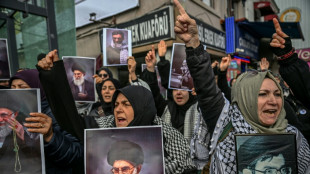
-
 Knicks halt Spurs' 11-game NBA winning streak
Knicks halt Spurs' 11-game NBA winning streak
-
EU warns against long war, urges 'credible transition' in Iran

-
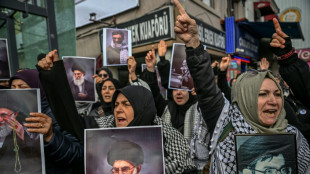 'Severe blow' dealt to Iran command centres: latest developments
'Severe blow' dealt to Iran command centres: latest developments
-
Bored of peace? Trump keeps choosing war

-
 Arteta embraces Arsenal's 'Set-Piece FC' label after corners sink Chelsea
Arteta embraces Arsenal's 'Set-Piece FC' label after corners sink Chelsea
-
Sevilla rescue derby draw to deal Betis top four setback

-
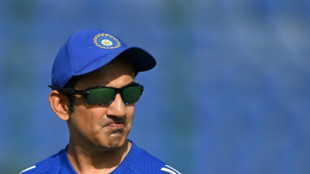 India need 'special effort' to beat England in semi-final: Gambhir
India need 'special effort' to beat England in semi-final: Gambhir
-
'A terrible day,' says Israel community shaken by deadly Iranian strike
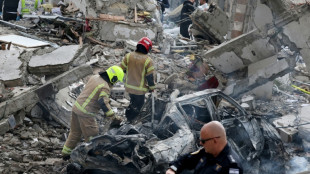
-
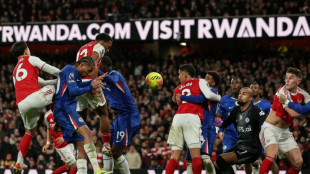 Arsenal corner Chelsea into submission, Man Utd climb to third
Arsenal corner Chelsea into submission, Man Utd climb to third
-
Arsenal win set-piece battle to sink Chelsea in title boost

-
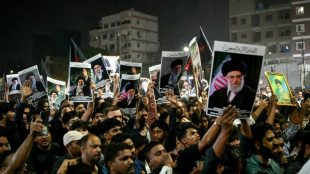 What future for Iranian leadership after Khamenei's death?
What future for Iranian leadership after Khamenei's death?
-
'Scream 7' makes a killing at N. America box office
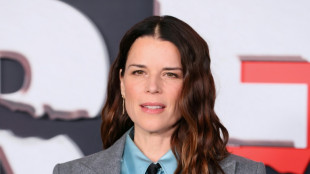
-
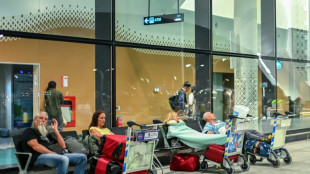 Thousands stranded as Iran conflict shuts Mideast hubs
Thousands stranded as Iran conflict shuts Mideast hubs
-
Samson's 97 puts India into T20 World Cup semi-final against England
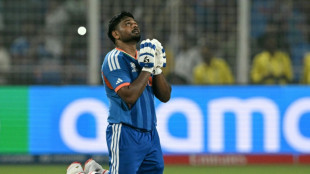
-
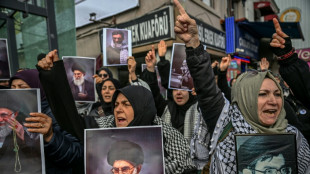 Latest developments as Iran retaliates to US-Israel strikes that killed Khamenei
Latest developments as Iran retaliates to US-Israel strikes that killed Khamenei
-
Spurs have 'big problems' says Tudor as relegation risk persists

-
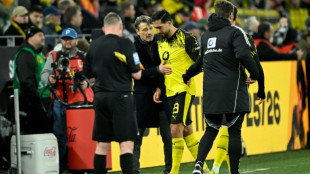 Dortmund captain Can out for season with ACL tear
Dortmund captain Can out for season with ACL tear
-
Leweling doubles up as Stuttgart sink sorry Wolfsburg

-
 Man Utd climb to third, Fulham sink sorry Spurs
Man Utd climb to third, Fulham sink sorry Spurs
-
Iran strikes send VIP Dubai influencers 'back to reality'
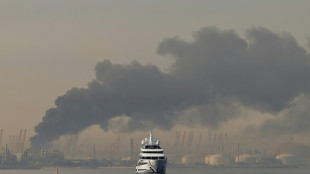
-
 Briton Brennan bursts to Kuurne-Bruxelles-Kuurne triumph
Briton Brennan bursts to Kuurne-Bruxelles-Kuurne triumph
-
Activists pressure Milan Fashion Week to go fully fur-free
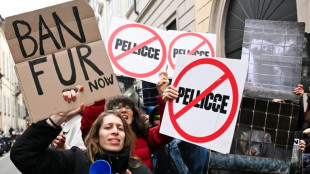
-
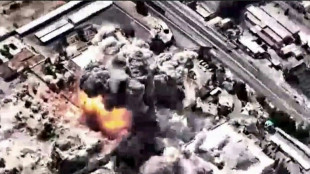 First US service members killed in operation against Iran
First US service members killed in operation against Iran
-
Blasts in Kabul as Afghan govt says responding to Pakistan attacks
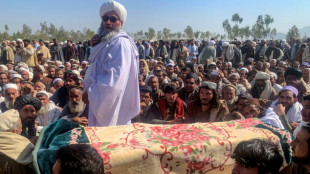
-
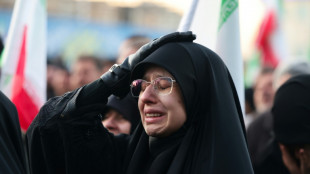 Iranians grieve, celebrate, worry after Khamenei's killing
Iranians grieve, celebrate, worry after Khamenei's killing
-
Latest developments as Iran lashes out after US-Israel strikes kill Khamenei
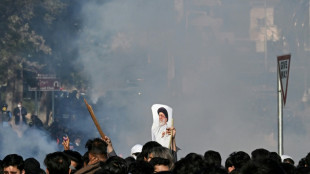
Israel's Covert Nuclear Rise
Israel’s emergence as a nuclear power is one of the most secretive and controversial developments in modern geopolitics. While the country has never officially confirmed or denied possessing nuclear weapons, it is widely believed to have developed a sophisticated nuclear arsenal. This article explores the key milestones and strategies that enabled Israel to become a nuclear power while maintaining a policy of deliberate ambiguity.
The Early Beginnings
The origins of Israel’s nuclear program trace back to the 1950s, shortly after the nation’s establishment in 1948. In 1952, the Israel Atomic Energy Commission was created, led by Ernst David Bergmann, a scientist who saw nuclear weapons as essential for Israel’s survival amid regional threats. The young nation, surrounded by hostile neighbors, sought a deterrent that could ensure its security.
A critical step occurred in the late 1950s when Israel began constructing the Dimona nuclear facility in the Negev desert. With significant assistance from France, which provided technology and expertise, the facility was built under a veil of secrecy. Officially labeled a "textile factory," Dimona became the heart of Israel’s nuclear ambitions. By the mid-1960s, it is believed that Israel had produced its first nuclear weapon, though no official records confirm this timeline.
The Policy of Nuclear Ambiguity
Central to Israel’s strategy is its policy of "nuclear ambiguity." This approach avoids explicit confirmation or denial of nuclear weapons possession, allowing Israel to maintain deterrence without triggering an arms race or international backlash. Israeli leaders have adhered to this stance for decades, rarely commenting on their capabilities. However, in 2006, then-Prime Minister Ehud Olmert briefly listed Israel among nuclear-armed states in an interview, a rare slip that was swiftly minimized.
The Whistleblower’s Revelation
The secrecy surrounding Dimona was shattered in 1986 when Mordechai Vanunu, a former technician at the facility, leaked photographs and details to the public. His revelations suggested that Israel possessed between 100 and 200 nuclear warheads, confirming suspicions about its capabilities. Vanunu’s actions led to his abduction by Israeli intelligence and an 18-year prison sentence, underscoring the lengths Israel would go to protect its nuclear program.
Advanced Delivery Systems
Israel’s nuclear arsenal is thought to be supported by a range of delivery systems. The Jericho series of ballistic missiles, initially developed with French assistance, can reportedly carry nuclear warheads over thousands of kilometers. Additionally, Israel’s fleet of Dolphin-class submarines, acquired from Germany, is rumored to be equipped with nuclear-tipped cruise missiles, offering a second-strike capability that enhances its deterrence.
International Stance and Regional Tensions
Israel has never joined the Nuclear Non-Proliferation Treaty (NPT), a decision that has drawn criticism, especially from regional rivals like Iran. Israeli officials maintain that they will not be the first to introduce nuclear weapons into the Middle East, a statement crafted to preserve ambiguity. In recent years, tensions with Iran over its nuclear program have spotlighted Israel’s own capabilities, with Israeli leaders advocating strong measures to prevent Tehran from achieving similar status.
A Lasting Legacy
Israel’s journey to nuclear power relied on strategic partnerships, covert operations, and a steadfast commitment to secrecy. While the full scope of its arsenal remains undisclosed, its status as a nuclear power is rarely questioned today. This reality continues to influence Middle Eastern geopolitics, shaping both regional dynamics and global efforts to curb nuclear proliferation.

Cuba's golden Goose dies

Mexico after El Mencho falls

Nicaragua on the brink?

Cuba: The Regime's last Card

Strike fears rise over Iran

U.S. Jobs stall, gdp slows

Japan’s right‑turn triumph

EU India deal gains unveiled

AI sparks Wall Street panic

India defies U.S. tariffs

EU misstep on mercosur Deal




